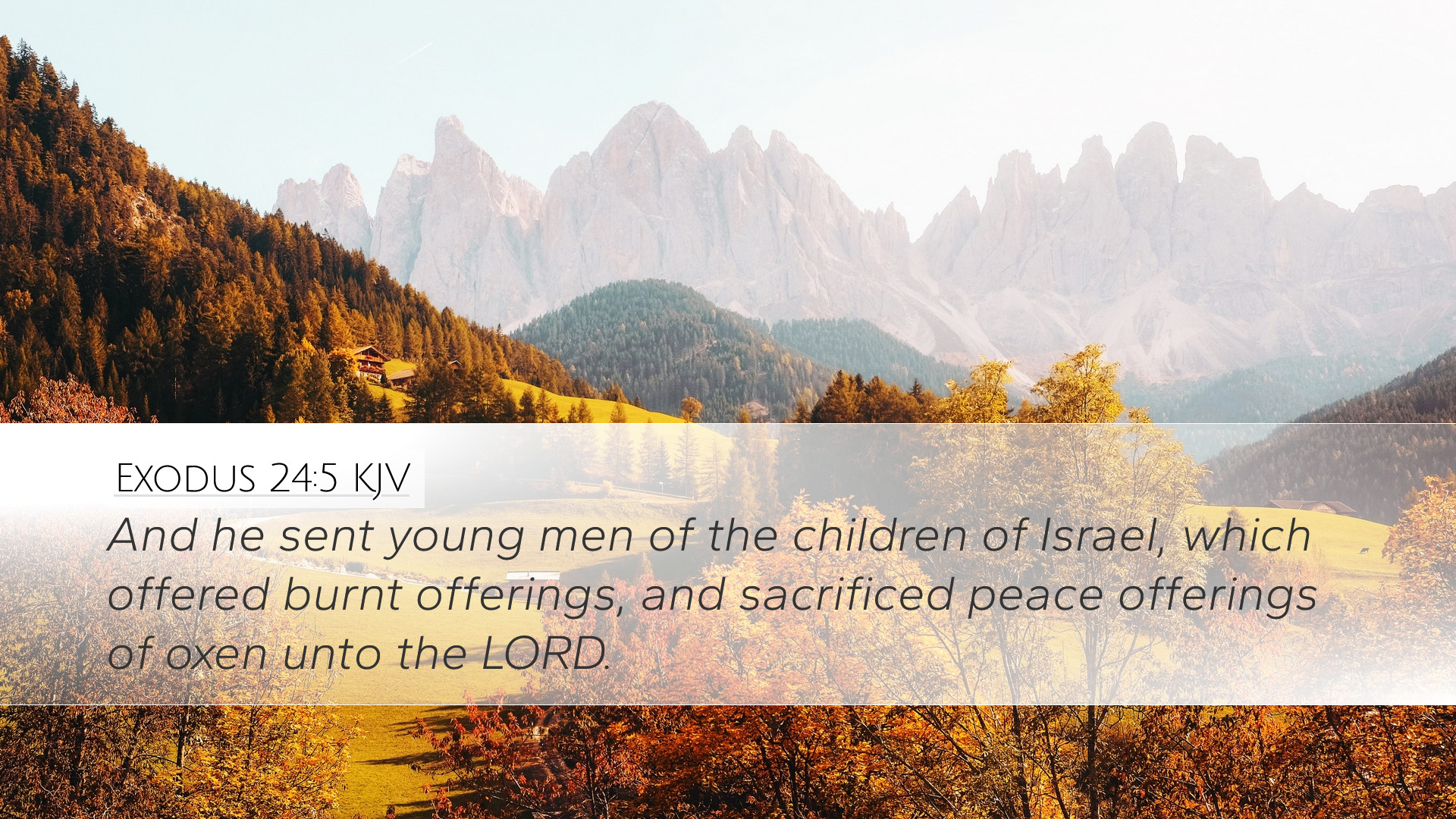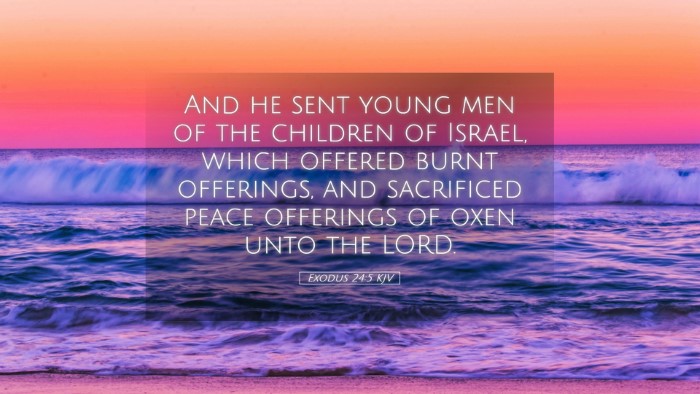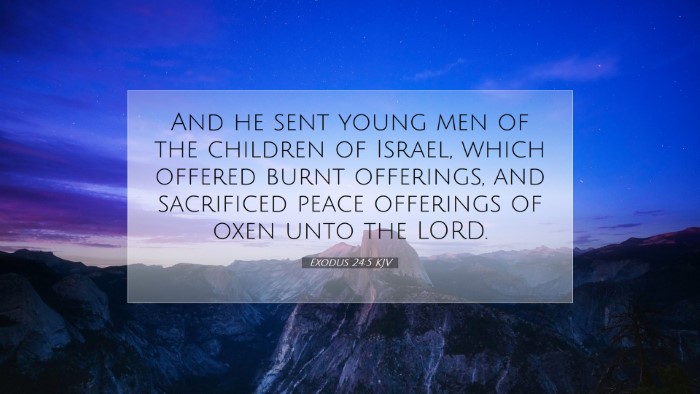Exodus 24:5 - Commentary Summary
Verse: "And he sent young men of the children of Israel, which offered burnt offerings, and sacrificed peace offerings of oxen unto the Lord."
Overview
Exodus 24:5 is a pivotal moment in the narrative of the covenant between God and the Israelites, occurring after Moses has received the Law. This verse highlights the importance of sacrifice in worship and as a means of affirming the covenant relationship established between God and His people.
Theological Significance
This verse signifies the transition from laws given to worship practices that solidify the people's commitment to God. The offerings made—burnt offerings and peace offerings—serve distinct purposes that are essential for understanding Israel's covenantal relationship with God.
Burnt Offerings
Burnt offerings symbolize total dedication to God. They are consumed entirely by fire, thus representing complete surrender and commitment. Albert Barnes notes that the burnt offering signifies the need for atonement and the desire to be wholly acceptable before God.
Peace Offerings
In contrast, peace offerings represent fellowship with God. According to Adam Clarke, these offerings are a form of communion, allowing the worshiper to celebrate the peace established between God and man. They are a joyous reflection of gratitude for divine mercy and favor.
Role of the Young Men
The mention of "young men of the children of Israel" chosen to carry out these sacrifices highlights the importance of leadership within the community. Matthew Henry emphasizes that such a choice indicates a readiness for service and suggests the involvement of the younger generation in priestly functions, foreshadowing the eventual establishment of a more formal priesthood.
Covenantal Context
This event occurs following the giving of the Law, which reaffirms God’s holiness and the need for the Israelites to approach Him with reverence. The sacrifices play a vital role in sealing the covenant relationship, showcasing their understanding that a relationship with God requires acknowledgment of His holiness through offerings.
Sign of Covenant Relationship
The act of offering sacrifices illustrates the importance of blood in covenantal relationships in Scripture. Clarke emphasizes that these sacrifices point to the need for atonement—a theme that culminates in the New Testament with the sacrifice of Christ. Each offering serves as a reminder of the necessity for mediation between a holy God and sinful humanity.
Lessons for Today
This verse has profound implications for contemporary worship practices and our understanding of sacrifice in the life of faith. Here are some key takeaways:
- Holiness of Worship: Worship must be approached with reverence, acknowledging God’s holiness.
- Community Involvement: The role of community in worship is essential; everyone, including the youth, should be involved in serving God.
- Understanding Sacrifice: The sacrifices of the Old Testament teach us about the cost of sin and the need for redemption through Jesus Christ.
- Joy in Fellowship: Peace offerings remind believers of the joy in fellowship with God and the importance of gratitude in their prayers.
Conclusion
Exodus 24:5 serves as a rich theological and practical resource for understanding the nature of worship and the significance of sacrifice in the life of believers. By examining the sacrificial acts of the Israelites, we gain insights into how these ancient practices inform modern understandings of atonement, thanksgiving, and communal worship.


